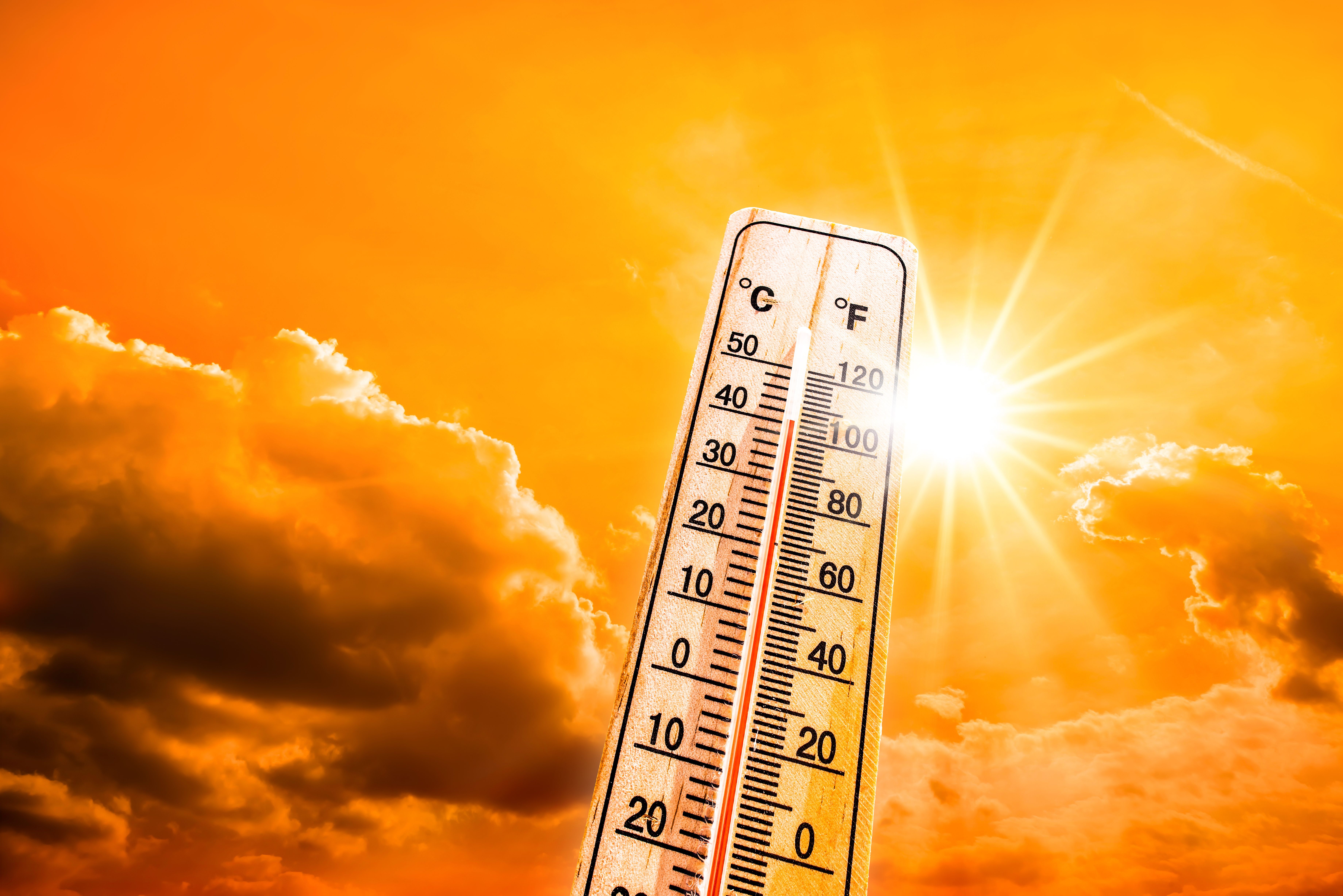News
Article
Study Indicates Increased Risks of Fatal Heart Attack Due to Combination of Heat Waves, High Fine Particulate Pollution Days
Author(s):
The risk could double if the conditions are met, with deaths more common in women and those aged 80 and older.
According to a new study published in the American Heart Association’s flagship journal Circulation, a combination of increased heat and fine particulate pollution may double the risk of deaths caused by a heart attack. In China, more than 202,000 heart attack deaths have been due to the temperature and pollution.
Thermometer in heat wave | Günter Albers | stock.adobe.com

Study researchers analyzed 202,678 heart attack deaths from 2015 to 2020 within the Jiangsu providence—a region with a wide range of temperatures, 4 distinct seasons, and fine particulate pollution levels—to evaluate the impact of extreme temperatures both with and without high levels of fine particulate pollution.
“Extreme temperature events are becoming more frequent, longer and more intense, and their adverse health effects have drawn growing concern. Another environmental issue worldwide is the presence of fine particulate matter in the air, which may interact synergistically with extreme temperatures to adversely affect cardiovascular health,” said senior author Yuewei Liu, M.D., Ph.D., an associate professor of epidemiology in the School of Public Health at Sun Yat-sen University in Guangzhou, China, in the press release. “However, it remains unknown if and how co-exposure to extreme temperatures and fine particulate pollution might interact to trigger a greater risk of death from heart attack…”
To capture both heat and humidity, temperatures were examined according to the daily heat index (apparent temperature). The length and extremeness of the heat waves and cold snaps were examined. During these periods, heart attack deaths, or case days, were compared to control days on the same day of the week in the same month. (e.g., If a death happened on Wednesday, every other Wednesday in the same month is considered a control day).
Particulate levels were determined to be high on days that had an average level of fine particulate matter above 37.5 micrograms per cubic meter.
“Our findings provide evidence that reducing exposure to both extreme temperatures and fine particulate pollution may be useful to prevent premature deaths from heart attack, especially for women and older adults,” noted Liu.
The study researchers calculated that up to 2.8% of heart attack deaths could be caused by the combination of high levels of fine particulate pollution and increasing temperatures. The mean age of individuals in Jiangsu who died from a heart attack between 2015 and 2020, was 77.6 years of age, with 52.1% being over the age of 80. Additionally, these deaths were generally more common in women than in men.
Compared with control days, the risk of a fatal heart attack increased by 18% during 2-day heat waves with temperatures ranging from 82.6 to 97.9 degrees Fahrenheit. Of the 202,678 total deaths, 6417 (3.2%) of them occurred during 4-day heat waves with temperatures ranging from 91.2 to 104.7 degrees. Additionally, 6331 deaths (3.1%) occurred during 3-day cold spells with temperatures ranging from 30.0 to 38.5 degrees. Days with high levels of fine particulate pollution during cold snaps didn’t appear to factor into the risk of heart attack death, although risk appeared to be twice as high when these pollution conditions were met during heat waves.
“Strategies for individuals to avoid negative health effects from extreme temperatures include following weather forecasts, staying inside when temperatures are extreme, using fans and air conditioners during hot weather, dressing appropriately for the weather, proper hydration and installing window blinds to reduce indoor temperatures,” said Liu in the press release. “…To improve public health, it is important to take fine particulate pollution into consideration when providing extreme temperature warnings to the public.”
Reference
American Heart Association. Risk of fatal heart attack may double in heat wave & high fine particulate pollution days. News release. July 24, 2023. Accessed July 25, 2023. https://www.eurekalert.org/news-releases/996090
Newsletter
Stay informed on drug updates, treatment guidelines, and pharmacy practice trends—subscribe to Pharmacy Times for weekly clinical insights.






